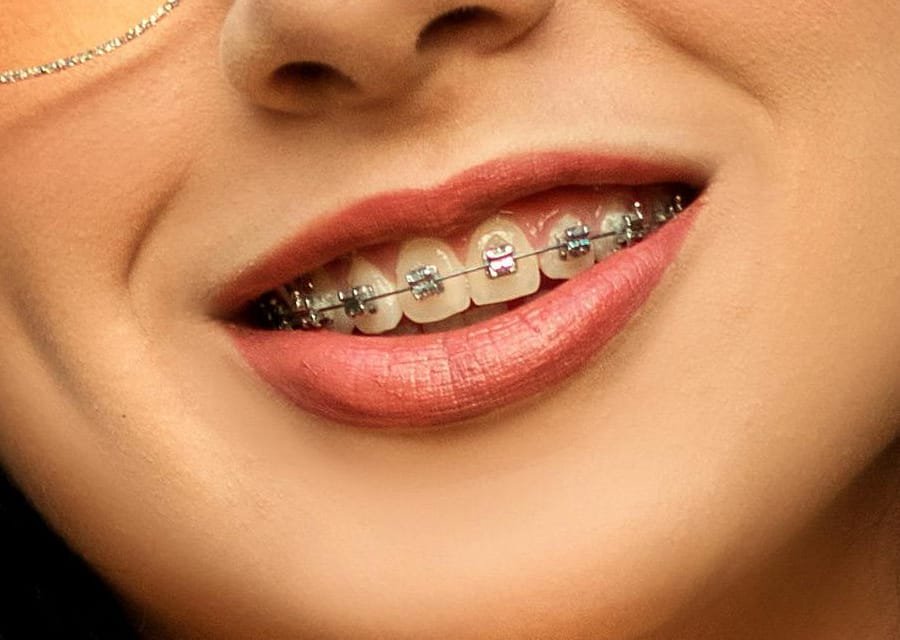
Thumb sucking is a common habit in young childrenand for many, it begins in infancy as a way to comfort themselves. While thumb sucking is generally harmless in early childhood, if it continues for too long, it can have significant effects on your child’s oral development. As a parent, understanding these effects and knowing when and how to address the habit can help ensure your child’s long-term oral health.
In this blog post, we will explore the impact of thumb sucking on oral development, the potential risks and what parents can do to help their children break the habit.
Why Do Children Suck Their Thumbs?
Thumb sucking is a natural reflex that many infants exhibit. It can begin even before birth, with some babies sucking their thumbs in the womb. After birth, sucking is a comforting mechanism for babies, providing them with a sense of security and relaxation, especially during times of stress, hunger or fatigue.
For many children, thumb sucking is a soothing behavior that they outgrow on their own by the age of 3 or 4. However, some children continue the habit into their preschool or school years, which can lead to complications if left unaddressed.
The Potential Effects of Thumb Sucking on Oral Development
While thumb sucking is a normal behavior in infants, prolonged or frequent thumb sucking can interfere with the normal development of your child’s teeth, jaw and mouth. The effects depend on the intensity of the sucking, the age of the child and how long the habit persists. Here are some of the potential issues:
- Misaligned Teeth (Malocclusion)
One of the most common effects of prolonged thumb sucking is the development of malocclusion or misalignment of the teeth. When a child sucks their thumb, the constant pressure can push the upper teeth forward and the lower teeth backward. This can result in:
- Overbite: The upper teeth protrude more than the lower teeth.
- Open bite: The upper and lower teeth don’t meet properly when the mouth is closed.
- Crossbite: The top teeth bite inside the bottom teeth, leading to improper alignment.
These alignment issues can affect your child’s ability to bite and chew properly and may require orthodontic treatment, such as braces, in the future.
- Changes to the Roof of the Mouth
Thumb sucking can also impact the shape of the palate (the roof of the mouth). The constant pressure from the thumb can cause the palate to become narrower and higher. This can contribute to difficulties with speaking, eating and breathing and may also affect the alignment of the teeth. If the habit continues long enough, the changes to the palate may be permanent.
- Jaw Problems
Over time, thumb sucking can put strain on the jaw and its development. The force exerted by the thumb can affect the growth of the upper and lower jaw, potentially leading to bite problems or jaw misalignment. In more severe cases, this could lead to issues with chewing and speaking and may require treatment by an orthodontist or oral surgeon.
- Speech Issues
Thumb sucking, especially when combined with other oral habits such as tongue thrusting, can impact a child’s speech development. The habit can interfere with the proper formation of sounds, leading to speech delays or difficulties, such as lisps or problems pronouncing certain words.
- Increased Risk of Oral Infections
Children who suck their thumbs are at a higher risk of developing oral infections, especially if the thumb is not clean. Sucking on a thumb or fingers can introduce bacteria into the mouth, increasing the likelihood of infections in the gums or other parts of the mouth.
When Should Parents Be Concerned?
While thumb sucking is normal for infants and toddlers, it’s important for parents to monitor the habit as their child grows. Here are some signs that thumb sucking may be starting to interfere with oral development:
- Persistent thumb sucking after age 3-4: Most children naturally outgrow the habit by this age. If your child continues to suck their thumb into their school years (age 5 or older), it may be time to intervene.
- Noticeable changes in the teeth or bite: If you notice your child’s teeth becoming crooked or if the bite appears misaligned, thumb sucking could be the cause.
- Speech problems: If thumb sucking is accompanied by speech delays or difficulty pronouncing words, the habit may need to be addressed.
- Jaw pain or discomfort: If your child complains of jaw pain or discomfort, especially after thumb sucking, it could indicate a problem with jaw development.
If any of these signs are present, it’s a good idea to consult with your child’s pediatric dentist, who can assess their oral health and recommend steps to address the issue.
How to Help Your Child Stop Thumb Sucking
If your child’s thumb sucking is affecting their oral health, it’s important to intervene and help them break the habit. Here are some strategies parents can try:
- Positive Reinforcement
Encourage your child to stop thumb sucking by using positive reinforcement. Praise them when they don’t suck their thumb and offer small rewards, such as stickers or extra playtime, for progress. Avoid punishing or scolding them, as this can increase stress and make the habit harder to break.
- Make It Less Appealing
Sometimes children suck their thumb out of habit or to self-soothe. To discourage the behavior, try making the thumb less appealing:
- Use a bitter-tasting thumb guard or nail polish designed to discourage thumb sucking.
- Encourage the use of a comfort object, such as a blanket or stuffed animal, to help with soothing during stressful times.
- Distraction Techniques
If your child tends to suck their thumb when they are bored, anxious or tired, offer distractions to keep their hands busy. Provide them with toys to hold, engage in activities that require them to use their hands (like drawing or building with blocks) or offer calming alternatives such as deep breathing exercises or a comforting bedtime routine.
- Behavioral Therapy
For children who continue to suck their thumb despite your efforts, you may want to consider consulting with a pediatric dentist or a behavioral therapist. In some cases, therapy or counseling may help children understand the reasons behind their thumb sucking and work on strategies to reduce anxiety or stress that triggers the behavior.
- Use a Dental Appliance
In some cases, a pediatric dentist may recommend a thumb-sucking appliance—a device placed in the mouth to make it difficult for the child to suck their thumb. These appliances are often used when other methods have not been successful and can help to break the habit.
Conclusion
Thumb sucking is a common and natural behavior in young children, but if it continues past the toddler years, it can have a negative impact on oral development. As a parent, it’s important to monitor your child’s thumb sucking habits and be aware of the potential effects on their teeth, jaw and overall oral health. If thumb sucking continues into the preschool or school years, it may be time to intervene.
By using positive reinforcement, offering distractions and consulting with a pediatric dentist if needed, you can help your child stop thumb sucking and protect their oral health for the future. Early intervention is key to preventing long-term dental issues, ensuring your child’s smile remains healthy and beautiful as they grow.
To schedule an appointment at ‘Sukumar Dental Clinic’ call +91-7418210108 or WhatsApp Dr. Sukumar at +91-9655225002. We take pride in having the top dental clinic in Palayamkottai, Tirunelveli. Alternatively, you can email us at info@sukumardental.com


